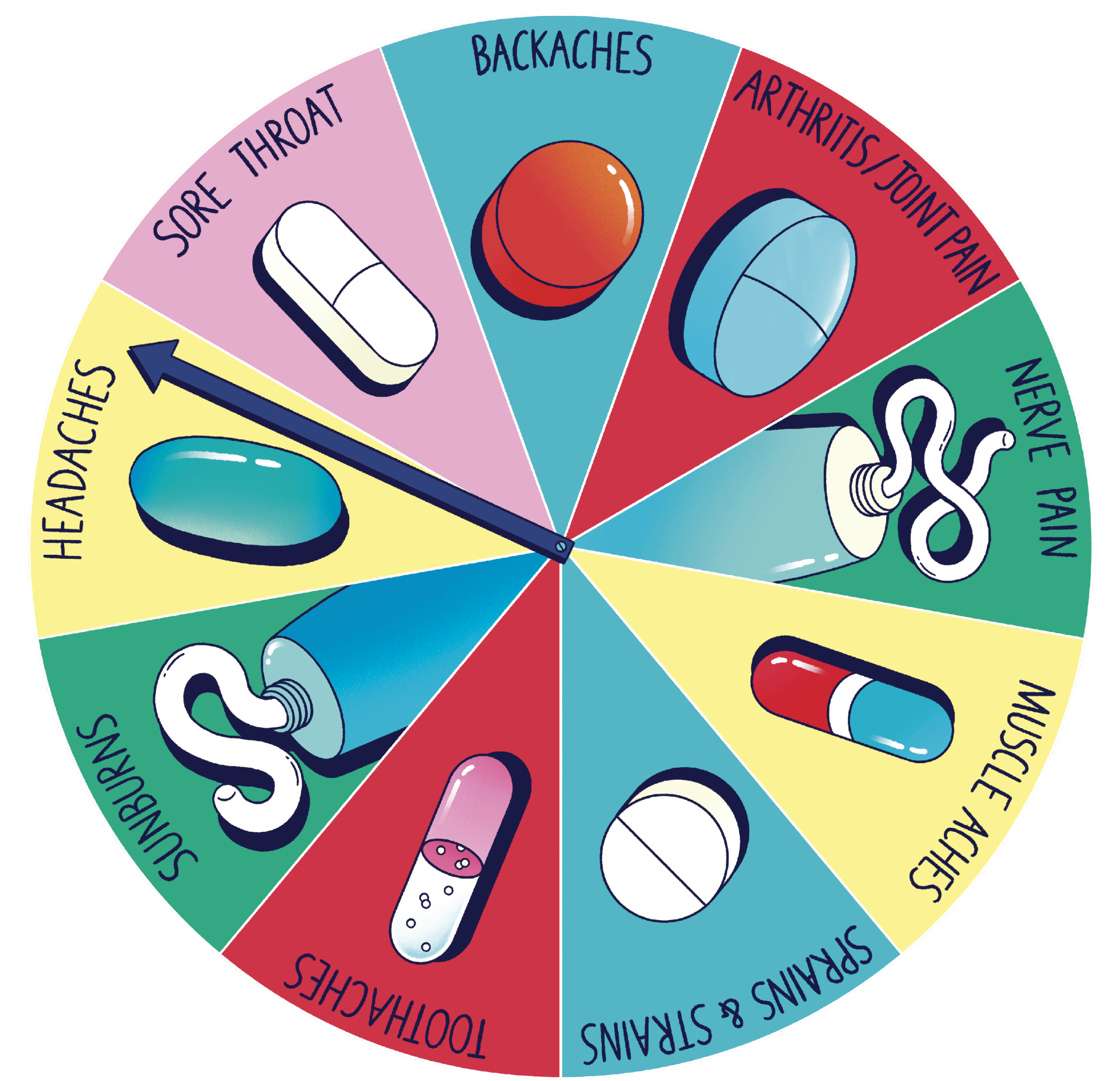HEALTHY YOU
Stone-Cold Painkillers
Find the perfect OTC remedy for every ache

WHAT’S THE BEST over-the-counter pain medication? It depends on what hurts—and why. “If you can target the pain with a medication that treats the underlying cause, the pain relief will be better,” says Sunny Linnebur, a professor at the University of Colorado Skaggs School of Pharmacy and Pharmaceutical Sciences in Aurora. Although your specific health conditions can alter the equation, here’s a general look at what’s best for what ails you.
Ibuprofen (Advil, Motrin, Midol)
Naproxen (Aleve, Naprosyn, Naprelan)
WHAT IT IS/WHAT THEY ARE: Nonsteroidal anti-inflammatories (NSAIDs) that reduce fever and block prostaglandins, compounds that cause pain and inflammation.
BEST FOR: Headaches, musculoskeletal pain, arthritis, toothaches, backaches, sunburn. These are safer choices than aspirin for those with bleeding risks.
DON’T USE FOR: Nerve pain.
AVOID IF: You take blood thinners or have uncontrolled high blood pressure, heart failure, or a history of ulcers or liver or kidney disease.
Acetaminophen (Tylenol, FeverAll, Panadol)
WHAT IT IS/WHAT THEY ARE: An analgesic and anti-fever medication that works in the brain to reduce mild to moderate pain by changing the way the body senses pain.
BEST FOR: Headaches, muscle aches, sore throat, toothaches, backaches, and sprains and strains. Best painkiller for people with GI issues.
DON’T USE FOR: Nerve pain or inflammatory conditions like arthritis.
AVOID IF: You are a heavy drinker. Take no more than 4,000 mg daily to avoid liver issues.
Aspirin
WHAT IT IS/WHAT THEY ARE: An NSAID that stops the production of prostaglandins, which cause pain and inflammation. It also reduces fever and blood clotting.
BEST FOR: Headaches, arthritis, toothaches, muscle aches, sprains, strains. It’s also the only NSAID that reduces heart attack and stroke risk.
DON’T USE FOR: Wounds or bruises (aspirin may promote bleeding) or nerve pain (it just won’t touch it).
AVOID IF: You take blood thinners or have uncontrolled high blood pressure, kidney disease, or ulcers or other bleeding risks.
Topical pain relievers
WHAT IT IS/WHAT THEY ARE: Anesthetics that temporarily relieve pain at the skin’s surface. A topical NSAID called diclofenac sodium topical gel 1% can be effective for joint pain.
BEST FOR: Neuropathic pain, nerve pain, sunburn, joint pain and soft-tissue injuries.
DON’T USE FOR: Wounds, open sores, headaches, toothaches.
AVOID IF: You are allergic to lidocaine. If you have liver or heart issues, don’t use the medication without consulting your doctor.
Beth Howard writes for Good Housekeeping, The Washington Post and other publications.